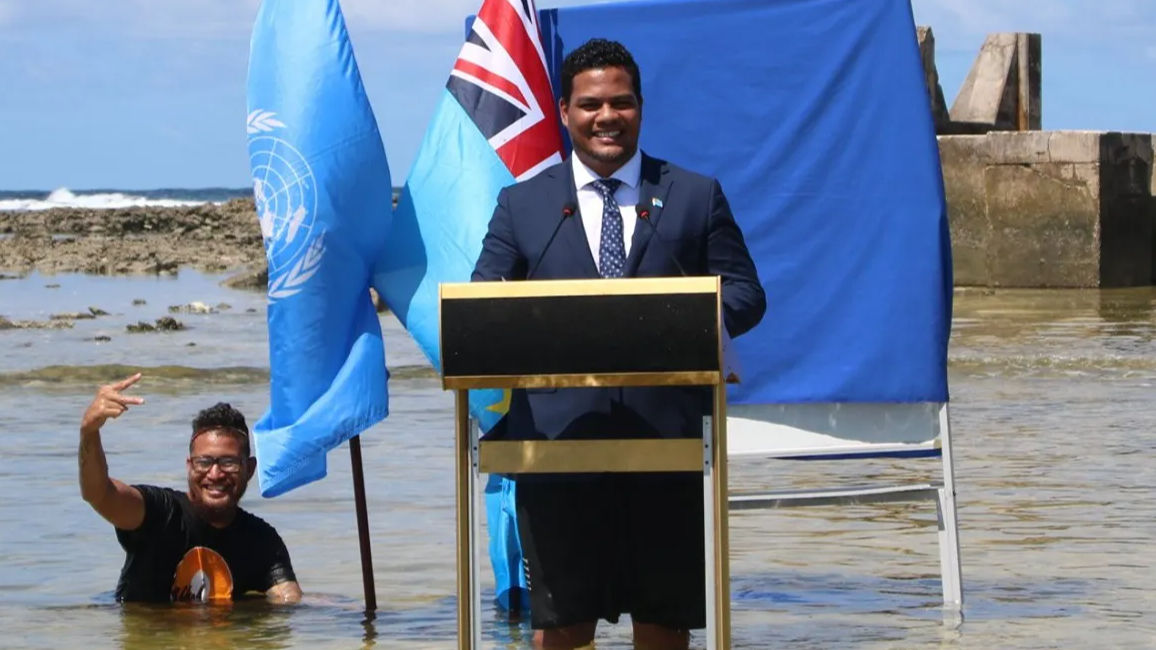Tuvalu, the island
nation in Oceania that buzzed into spotlight after its foreign minister addressed
COP26 standing mid-sea, is trying hard to retain ownership of its maritime
zones even if the island is completely submerged in sea due to the climate
crisis. Foreign Minister Simon Kofe, who addressed the UN climate summit
recently, said that the country is preparing for the worst-case scenario.
Also Read | COP26: Tuvalu foreign minister stands mid sea to deliver strong message on climate
“We’re actually
imagining a worst-case scenario where we are forced to relocate or our lands
are submerged,” Simon Kofe told Reuters in an interview. In the same conversation,
the minister said that Tuvalu is seeking out legal avenues through which the
country can retain its recognition as a state under international law.
Also Read | US-China climate pledge at COP26 gets cautious welcome
Simon Kofe’s
pictures went viral on social media after he set up a lectern mid sea to
address COP26 with the stated goal of juxtaposing the realities of climate
change against the space where large-scale discussions on climate change were
happening and the space that is required to craft the vision for the future.
“We didn’t think
it would go viral as we say over the last few days. We have been very pleased
and hopefully that carries the message and emphasises the challenges that we
are facing in Tuvalu at the moment,” Kofe said.
Also Read | Rich countries obliged to fulfill climate finance pledge: Indian minister
The place from
where Tuvalu addressed the august UN assembly used to be dry land. However,
coastal erosion coupled with the rise in sea levels has submerged large parts
of the land.
When asked how the
people of Tuvalu are responding to the climate crisis, the foreign minister
said that many in the older generation say they are happy to go down with the
land, but others are leaving. “The one thing is clear that the people have a
very close tie to the land,” added Simon Kofe.
Simon Kofe, 37,
was elected in the Tuvalu general elections held in 2019. He holds the ministry
of justice, communication and foreign affairs under the cabinet of Kausea
Natano.
The island nation
of Tuvalu has a population of 11,000 people. Its highest point above sea level
is just 4.5 meters. Sea levels in Tuvalu have been rising since 1993 by about 0.5
cm a year, according to an Australian government study published in 2011.







